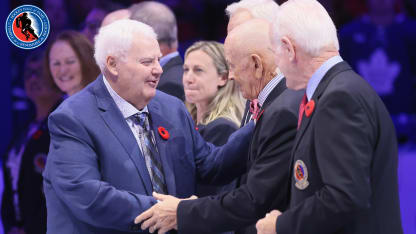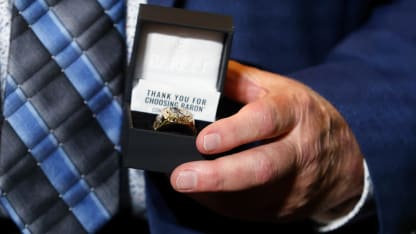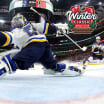That will come 24 or so hours after he’ll be celebrated at a private Sunday dinner in downtown Toronto, attended by his family, friends and members of the Stars, Flyers and Blues.
“That’s the highlight of the weekend,” he said. “To be able to share this with those people who mean the world to me is No. 1, by a mile.”
Now, Hitchcock says, it is his duty to celebrate the vocation of hockey coaching, “a noble profession,” he calls it, and to let one and all know how important coaching is to himself and to those he calls his colleagues.
“My feeling is that the coach is responsible of the culture,” he said, considering his life’s journey. “The culture and the commitment to culture is created by the coach. That’s a very important part of having success as a team.
“As a coach, I was very driven and demanding and I held the players to a high standard. The reason I did that -- and I don’t care what the media said or what they thought -- is that every team I coached was capable of doing special things. I felt that it wasn’t based on my record, it wasn’t based on wins and losses. It was based on the commitment to each other.”
Hitchcock’s speech will touch upon sacrifice his players made at every level to achieve those special things, in victory and defeat.
“I really felt it was my job to convince the players that the level of sacrifice that they made was worth it,” he said “If I could find a way for them to embrace that level of sacrifice, regardless of our record, we would all find success. I thought that my job as a coach was to build that commitment, culture and accountability within the group.
“People might find this surprising, but I was very proud of the fact that I was a demanding coach. I wasn’t afraid of the players, I wasn’t afraid of the criticism, and I wasn’t afraid of going on the island. I felt that way because of the support I had from my (general) manager. I was lucky.
“I’ve had a lot of really great, supportive managers and that allowed me to do what I do best. But in saying that, I did it because I really believed in my players. I really believed that every year, we were capable of something special and that we could make it happen together if I could facilitate the buy-in that was necessary to have success.”
Hitchcock will right what might have been a mild wrong when he speaks to the profound relationship he had with his players in minor hockey through major-junior, the minor pros, the NHL and in international arenas.
“What never gets said is how much I appreciated what the players sacrificed and what they gave, and how much I loved the players,” Hitchcock said. “I had a healthy respect and admiration for them that is as high as anybody in the National Hockey League. That was what I felt in my heart. I wish that I would have said it more, but I really do love the players and their commitment. It didn’t go unnoticed or unappreciated.”
This weekend, and every time he will choose to visit the shrine’s Great Hall, he’ll see the greatest legends of hockey displayed on the plaques. That he is now among them hasn’t quite sunk in yet.








